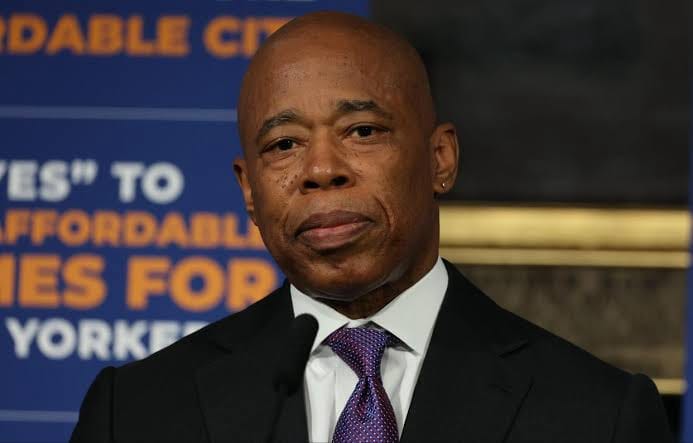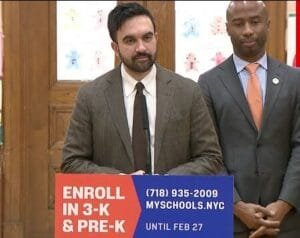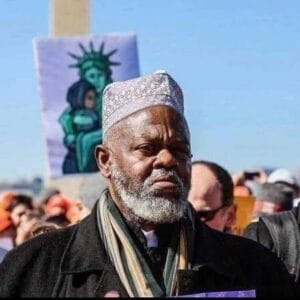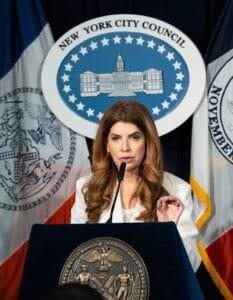NYC secures $40m in EPA grants to boost electric vehicle fleet, cut emissions
Mayor Eric Adams has announced the city’s success in securing $17.3 million from the EPA’s 2024 Clean Heavy-Duty Vehicles Program to replace 55 diesel-powered vehicles with electric ones, expand EV charging infrastructure, and provide workforce training for mechanics and drivers.

Mayor Eric Adams has announced the city’s success in securing $17.3 million from the EPA’s 2024 Clean Heavy-Duty Vehicles Program to replace 55 diesel-powered vehicles with electric ones, expand EV charging infrastructure, and provide workforce training for mechanics and drivers.
Additionally, the New York City School Bus Umbrella Services, Inc. received $32 million to add 109 electric school buses to its fleet.
“Building a safer city also means protecting New Yorkers from dangerous emissions and the impacts of climate change — and that’s exactly what we’re doing,” said Mayor Adams. “These $40 million in grants will allow us to take dozens of heavy-duty diesel trucks and more than a hundred polluting school buses out of our city’s fleet and replace them with clean, zero-emissions vehicles.”
Deputy Mayor for Operations Meera Joshi emphasized the city’s leadership in sustainability. “We continue to make it rain for New York City, this time with $40 million in grants to reduce emissions of our heavy-duty fleet and build on our efforts to electrify our school buses and industrial parks like Hunts Point.”
Vehicles to be replaced include diesel-powered food delivery trucks, refuse haulers, mechanical brooms, and utility vehicles critical to roadwork and water system maintenance. The city estimates the shift to electric vehicles (EVs) will cut 700 metric tons of carbon dioxide annually, equivalent to planting a Central Park-sized forest.
**Investing in EV Infrastructure and Workforce Development**
The grants will also fund the installation of 10 new fast chargers, adding to the city’s extensive charging network of over 2,100 stations. Workforce training initiatives will prepare mechanics and drivers to handle the city’s growing EV fleet, ensuring its long-term sustainability.
DCAS Commissioner Louis A. Molina highlighted the city’s progress: “Thanks to this $17 million grant, we’re not just bolstering the greenest fleet in the nation; we’re also investing in the physical infrastructure and the knowledge base needed to maintain it.”
**Building on Federal Funding Wins**
Under the leadership of Deputy Mayor Joshi and the Federal Infrastructure Funding Task Force, New York City has secured over $2.3 billion in federal grants, including $1.3 billion from competitive applications. These funds have supported projects ranging from stormwater management to new parks and renewable energy solutions.
U.S. Senator Chuck Schumer praised the city’s efforts: “This $40 million federal award is a huge win-win: clean, electric school buses that don’t pump dirty diesel fumes into our air and a better, safer ride for our kids.”
Senator Kirsten Gillibrand added, “This funding demonstrates the city’s commitment to prioritizing clean energy practices that support good-paying jobs and protect communities overburdened by air pollution.”
**Advancing Environmental Justice and Sustainability**
City officials, including Public Schools Chancellor Melissa Aviles-Ramos and Queens Borough President Donovan Richards Jr., underscored the initiative’s environmental justice implications. “We’re working hard to make our city a greener place for the next generation,” said Aviles-Ramos.
“This is about clean air and a healthier environment for communities that have suffered disproportionately from pollution,” added Richards.
As the city accelerates its transition to electric vehicles, it continues to position itself as a national leader in climate action and sustainability. Councilmember James F. Gennaro noted, “This historic $40 million investment marks an important step in our commitment to cleaner air and a greener future.”
New York City’s ambitious plans are a testament to its commitment to building a more sustainable and resilient urban environment, with benefits that will ripple across generations.












